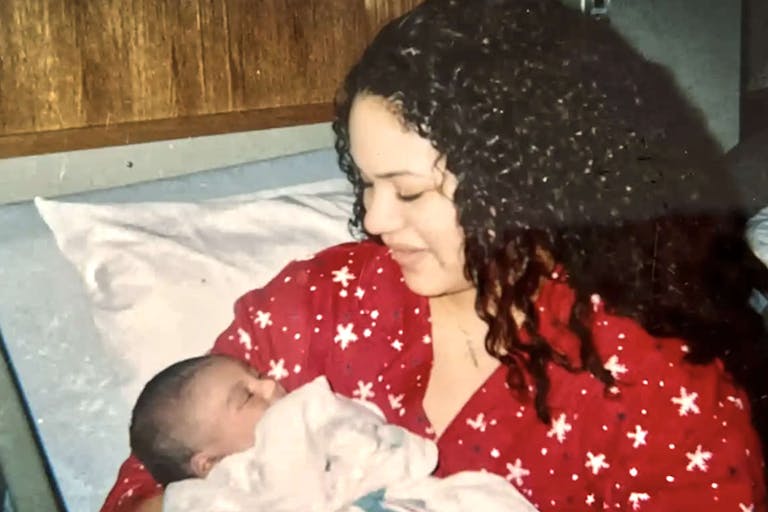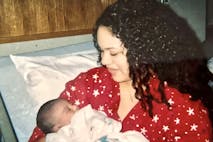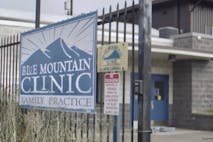
She chose life for her children, no matter what the future might hold
Melina Nicole
·
Judith’s story demonstrates how compassion, not hostility, is needed to reach abortion workers
(Sarah Terzo – Substack) It’s important to reach out to abortion workers with compassion. Those who gather outside of abortion facilities and yell at workers, tell them they are going to hell, or shout bible verses at them, only increase their commitment to the abortion industry.
After all, would you want to listen to someone who is hostile, judgmental, and belligerent? Or who loudly condemns you to hell? I know I wouldn’t.
Even when workers are dissatisfied with their jobs and want to quit, harsh words and insults from pro-lifers can cause them to stay in the abortion industry. Here is one example.
Judith Fetrow worked in a Planned Parenthood abortion facility. Her job emotionally traumatized her. But when she decided to leave, shouted condemnation from pro-life activists caused her to turn around and walk back into the facility, taking refuge there with people who she knew wouldn’t judge her.
This is her story.
Fetrow says that not all the abortion workers at Planned Parenthood saw the remains of aborted children. Usually, there was one worker assigned to work in the “products of conception” room where the bodies of the babies were taken.
But there were some things Planned Parenthood couldn’t hide from their employees. Fetrow says:
Although workers can be protected from seeing the babies’ butchered bodies, there is no inoculation to make clinic workers immune to the smell of blood, and the smell of blood permeates the clinic on killing days.
Planned Parenthood workers also weren’t told about complications and lawsuits against the affiliate where they worked.
Since many post-abortive patients only developed complications, such as infections or retained fetal tissue, after they left the facility, and then went to their own doctors, rather than back to Planned Parenthood for treatment, workers didn’t know the true complication rate. So, they didn’t know how many pregnant people the abortionists injured.
The workers, therefore, were able to operate under the illusion that they were helping people with unwanted pregnancies.
Fetrow was the worker in charge of disposing of the bodies of the aborted babies. She had to prepare the body parts for disposal. Fetrow says:
I did not particularly want this job. However, I did not want to see the babies treated disrespectfully. I did not want to hear Janice callously say she was taking the kids and putting them into daycare.
Fetrow knew abortion was killing. When pro-lifers outside the facility mistook her for a patient, she taunted them: “When someone begged me not to kill my baby, I’d look at them and say, ‘Oh, I’m not here to kill my baby. I’m here to kill other people’s babies.’”
When they asked her when she thought life began, she would answer, “Life begins at conception and what I do is murder.”
While many abortion providers deny that abortion is the taking of a life, a surprising number have admitted publicly that abortion kills babies.
Fetrow describes the emotional trauma she and other workers experienced:
[I] saw two types of women working at the clinic. One group were women who had found some way to deal with the emotional and spiritual toll of working with abortion.
The second group were women who had closed themselves off emotionally … You could look in their eyes and see that they were emotionally dead. Unavailable for themselves, or for anyone else.
She also witnessed harm to the people coming in for abortions:
I watched Dr. William P — perforate [puncture] a woman’s uterus and then lie about the severity of the perforation.
The most horrifying complication that I witnessed was a woman who stopped breathing during the abortion. Dr. Michael S — just walked out of the room when he was finished.
Despite my telling him that our client was not breathing, he left me alone with her. When Dr. S — was forced to return, we didn’t even follow emergency protocol for that situation. It was a miracle that this woman didn’t die.
She began doubting what she was doing, saying, “I began to wonder if we were really caring for these women, or if we were just working for another corporation whose only interest was the bottom line.”
One day, Fetrow was so upset she decided to quit.
But on the way out of the abortion facility for what she intended to be the last time, pro-lifers shouted at her, “Murderer! The blood is on your hands!” She felt as though “someone had kicked me in the stomach,” and returned to the abortion facility.
After all, the people at the clinic wouldn’t judge, condemn, or attack her.
Fetrow did eventually leave her job and went on to oppose abortion. Pivotal in her conversion was the patience and compassion of a pro-lifer who befriended her. Had it not been for this pro-lifer, who approached her with kindness, she may never have left the abortion industry. Or if she had, she may never have told her story or become a pro-life advocate.
Editor’s Note: This article was published at Sarah Terzo’s Substack and is reprinted here with permission.
Live Action News is pro-life news and commentary from a pro-life perspective.
Contact editor@liveaction.org for questions, corrections, or if you are seeking permission to reprint any Live Action News content.
Guest Articles: To submit a guest article to Live Action News, email editor@liveaction.org with an attached Word document of 800-1000 words. Please also attach any photos relevant to your submission if applicable. If your submission is accepted for publication, you will be notified within three weeks. Guest articles are not compensated (see our Open License Agreement). Thank you for your interest in Live Action News!

Melina Nicole
·
Guest Column
Melina Nicole
·
Guest Column
Wesley J. Smith
·
Politics
Rebecca Oas, Ph.D.
·
Politics
Calvin Freiburger
·
Human Interest
Melina Nicole
·
Guest Column
Sarah Terzo
·
Abortion Pill
Sarah Terzo
·
Guest Column
Sarah Terzo
·
Guest Column
Sarah Terzo
·
Guest Column
Sarah Terzo
·